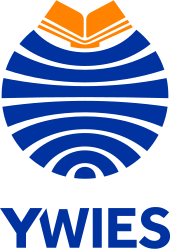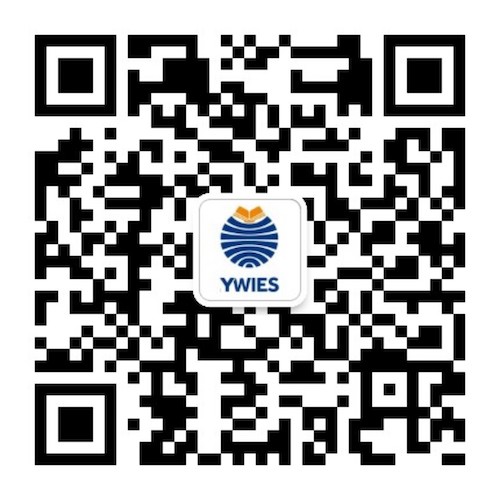Go Back
News
YCYW News
OceaniaOne: Three-Week Immersive Learning in Australia
YCYW News
03 Nov, 2025
16 : 16
From July 8-26, 2025, twenty YCYW students immersed themselves in hands-on learning. They engaged in various activities—from marine science on the Great Barrier Reef to robotics, cybersecurity, and healthcare workshops; from wilderness camping under star-filled skies to prototyping new ideas through an entrepreneurship project. During the trip, the students developed friendships across campuses, stepped out of their comfort zones, and linked classroom theories to real-world discovery.
Read on for insights about the programme, and from its leader, the accompanying teacher, and participating students.

Dr Christopher Hurley
We built on last year’s “ChinaOne” to offer “OceaniaOne”—a 12-month-in-the-making summer programme that immerses 14–15-year-olds in environmental sustainability, entrepreneurship, and storytelling. Unlike typical camps that focus on a single subject, we have connected fields—such as marine science on the Great Barrier Reef with nursing—to spark fresh ideas such as a “coral first-aid kit”.
Our aim is twofold. First, students uncover interests they would never consider and develop unexpected skills. Second, we mirror global trends towards double majors and interdisciplinary study. Forging links between research and real-world challenges produces truly novel outcomes.
Coordinating and overseeing such a large-scale experiential learning programme was not easy. We wrote to probably 20–25 universities, negotiated unique laboratory visits, and designed experiences that go beyond educational tourism. Every risk assessment, logistical plan, and expert partnership had to be forged from scratch.
And what were the highlights? Watching shy teenagers prototype products and then pitch them confidently during our entrepreneurship module; camping under the Milky Way with students huddled around nightly fires; and snorkelling on the reef—measuring coral, observing crown-of-thorns starfish damage, and understanding the ecological impact of tourism.
Most of the participants were first-time visitors to Australia. By the end, each group amazed us with their creative final presentations that wove together diverse encounters into a cohesive vision.

Ms Trill Zhang
As an accompanying teacher, I saw how this Australian journey offered students far more than a study tour. It fostered genuine growth that I would describe in one word: “authentic”—academic rigour, real challenges, and cultural immersion.
The biggest gain was a widening of academic horizons. We didn’t just tour the Australian National University and the University of Canberra; we joined hands-on workshops. At Griffith University, students used spectrometers to test sunscreen SPF (sun protection factor) and even made facial cleanser in the lab, turning abstract chemistry into vivid experiments. At a zoo workshop we partnered with Sydney University, many students encountered zoology for the first time, gaining fresh respect for wildlife.
With Queensland University of Technology, we co-designed a three-day entrepreneurship module. In a 3D-print-equipped makerspace, small teams ideated, prototyped, and pitched solutions. Faculty members guided each group patiently; by the end, every student had delivered a confident presentation—sharpening business acumen, teamwork and communication.
What set OceaniaOne apart was its real-world access that typical tours could not match. I recall how Ray, a student who is fascinated with computers, was captivated by the Australian National University robotics lab. I encouraged him to exchange contact information with a professor—an experience no brochure could rival.
Life beyond the classrooms was equally transformative. Camping in Girraween National Park during sub-zero-degree nights developed resilience in the students and rewarded us with the Milky Way overhead. And five days at the Great Barrier Reef went beyond snorkelling. Students conducted marine research, deepening their respect for the environment.
By combining academic engagement, cultural exchanges, and outdoor challenges, OceaniaOne guided each student to a personal breakthrough—preparing them to step confidently onto the global stage.

YWIES Beijing Yizhuang G10 Coco
To me, OceaniaOne was far more than a summer study tour; it was a window into the real world. Whereas ChinaOne offered a broad “adventure” of new experiences, OceaniaOne went deeper, enabling me to engage with subjects I genuinely care about and to gain concrete, meaningful insights.
The most unforgettable part was our five days in Cairns and on the Great Barrier Reef. It wasn’t mere snorkelling—it was hands-on marine science. We used transect tapes to assess coral health and distinguished living from bleached colonies. We also learned about the crown-of-thorns starfish that threaten the ecosystem. Seeing biology and geography in action turned my vague interest in zoology and marine conservation into a tangible passion.
Beyond sharpening my academic interests, the programme challenged me personally. The entrepreneurship programme in Brisbane was outside my comfort zone, but brainstorming ideas and delivering pitches with my team honed my teamwork and communication skills. More importantly, it taught me how to tackle unfamiliar subjects with curiosity and an open mind.
The immersive moments themselves also stood out, such as: camping beneath the Southern Hemisphere’s starry skies with kangaroos as neighbours; discussing conservation with experts at Sydney Zoo; and developing friendships across Yew Chung campuses. These experiences deepened my appreciation for global diversity and reinforced the strong sense of community within our network of schools.
In short, OceaniaOne enabled me to explore my academic passions in depth, broaden my horizons through cross-cultural immersion, and achieve significant personal growth. When recommending OceaniaOne to fellow students, I’d say: This journey lets you truly see—and even touch—the possibilities of your future.

YWIES Yantai G12 Ester
OceaniaOne in Australia proved to be a truly formative experience. As a Year 12 Biology and Chemistry student, this was my first opportunity to link classroom theories with real-world practice.
What I’m most proud of happened in Cairns. Although I’d never learned to swim in my 16 years, I mustered the courage to snorkel in the open sea. The moment I slipped beneath the surface and saw vibrant corals and schools of tropical fish, I was lost for words. We didn’t just observe marine life—we measured coral health by colour (white for dead, bright for healthy). In the university lab, we even tested sunscreen effectiveness ourselves, giving me a much clearer understanding of applied chemistry.
Beyond the academic insights, the trip strengthened my independence. Travelling so far from home for the first time, I managed my own schedule and struck up simple English conversations with locals while shopping. These small steps greatly boosted my confidence.
Building friendships with YCYW students from different campuses was especially rewarding. We moved from shy introductions to deep conversations about our school experiences, forging strong bonds we still maintain. That sense of belonging to one big family was truly heartwarming.
Unlike a typical tour, the programme granted us real access to university resources—using VR (virtual reality) equipment and engaging professors face-to-face. This immersive, hands-on learning confirmed my desire to pursue biochemistry. I wholeheartedly recommend OceaniaOne; it offers a unique chance to broaden your horizons and grow as an individual.

YCIS Hong Kong Y10 Tyrone
I’d never been to Australia, nor had I studied marine science at school. Yet OceaniaOne’s Great Barrier Reef dive changed that: I measured coral, inspected starfish, and discussed coral bleaching with researchers, discovering an unexpected fascination for marine sciences.
At Queensland University of Technology, the entrepreneurship module taught us practical, real-world skills. Our team built a “runaway” alarm clock prototype that rolls away when it rings, forcing heavy sleepers out of bed. In two days, we scavenged foam, circuit boards, and wires; wrote code with Dr Hurley’s help; and delivered a five-minute pitch. I learnt to craft a narrative, identify a target market, and set pricing—skills that dovetail with my business and computer science studies.
Camping in Girraween National Park tested my limits. We hiked steep slopes, collected firewood, lit campfires, and watched kangaroos in the morning fog. Temperatures dipped below freezing, but conquering the cold and the rugged terrain filled me with newfound confidence.
Wandering alone through local malls taught me to navigate unfamiliar streets, order meals confidently, and strike up conversations—simple acts of independence I’d rarely practised on family trips.
OceaniaOne offered experiences I couldn’t have arranged myself—from university labs and reef research to wilderness camping. The programme revealed strengths I didn’t know I possessed. It didn’t just show me Australia; it showed me who I can become.






















